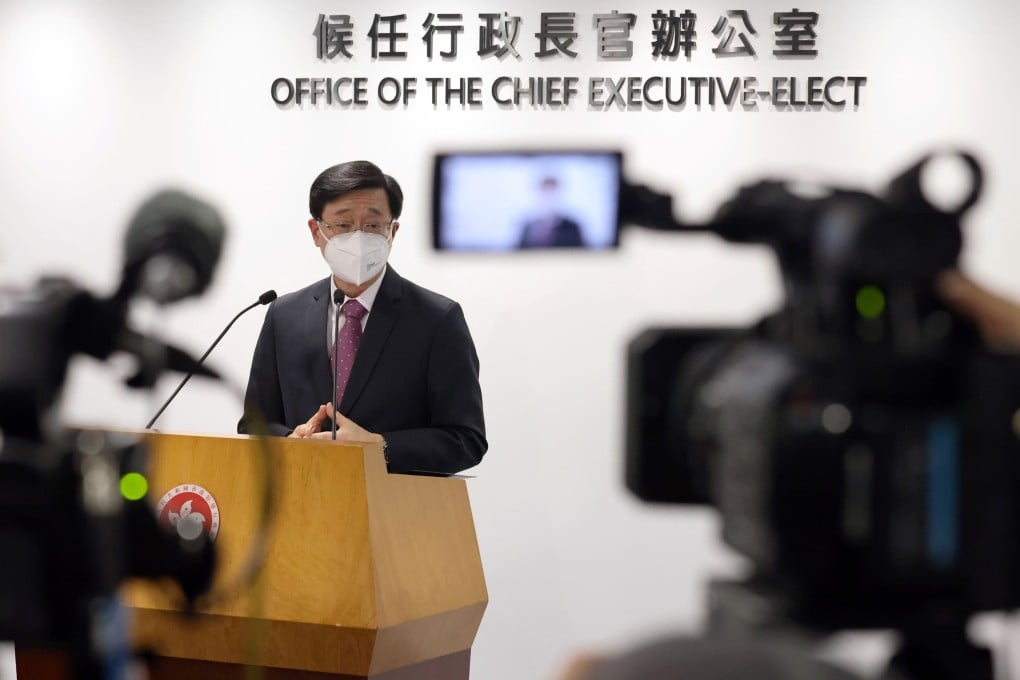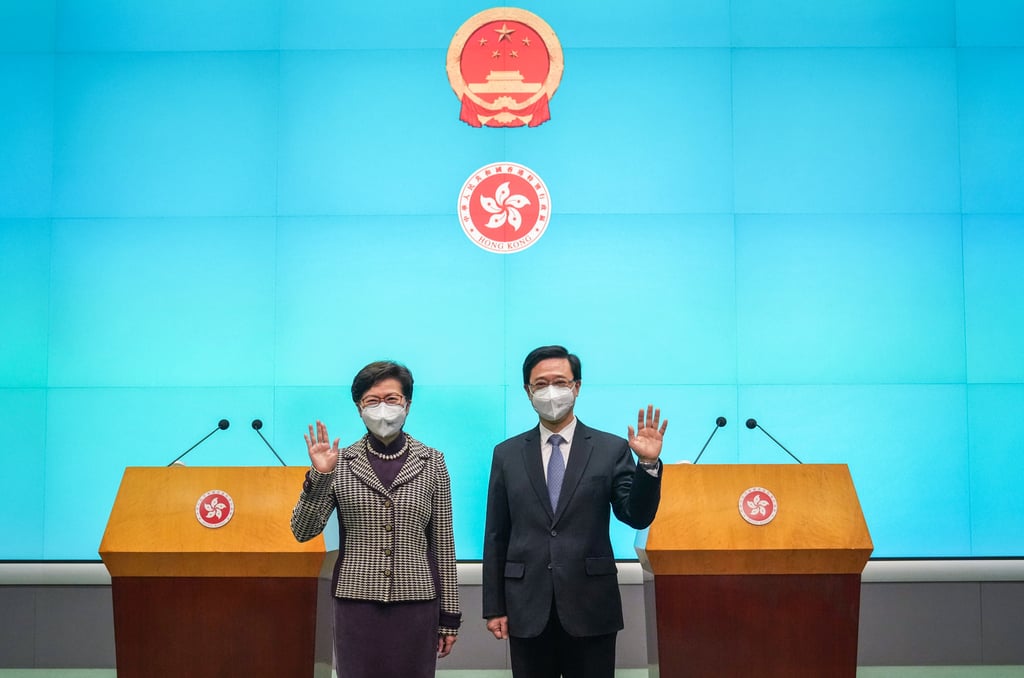Hong Kong government revamp to cost taxpayers extra HK$95 million a year, but incoming leader vows better results
- Overhaul calls for new roles of deputy secretary for justice, deputy financial secretary and deputy chief secretary for administration
- Chief Executive-elect John Lee says he suggested three deputy roles as top secretaries all have to oversee many bureaus and department

“[The reorganisation] allows us to solve relevant problems in a more focused manner … this will create synergies among departments and lead to a clearer division of labour,” Lee said.
Lam, who will be replaced by Lee after he is sworn in as chief executive on July 1, said: “If he felt that it was not the right approach, he could throw it away and start afresh. But on this occasion, Mr John Lee felt that he agreed with the entire package.”

The three new deputy ministers will be among 13 politically appointed officials created under the revamp, adding significantly to the 43 posts already existing. Each deputy will receive HK$363,400 a month, just below the range of HK$369,650 to HK$396,000 that the three highest-ranking secretaries will earn after the latest pay rise, and about HK$60,000 less than what the chief executive receives. An additional 57 civil service posts will also be created.